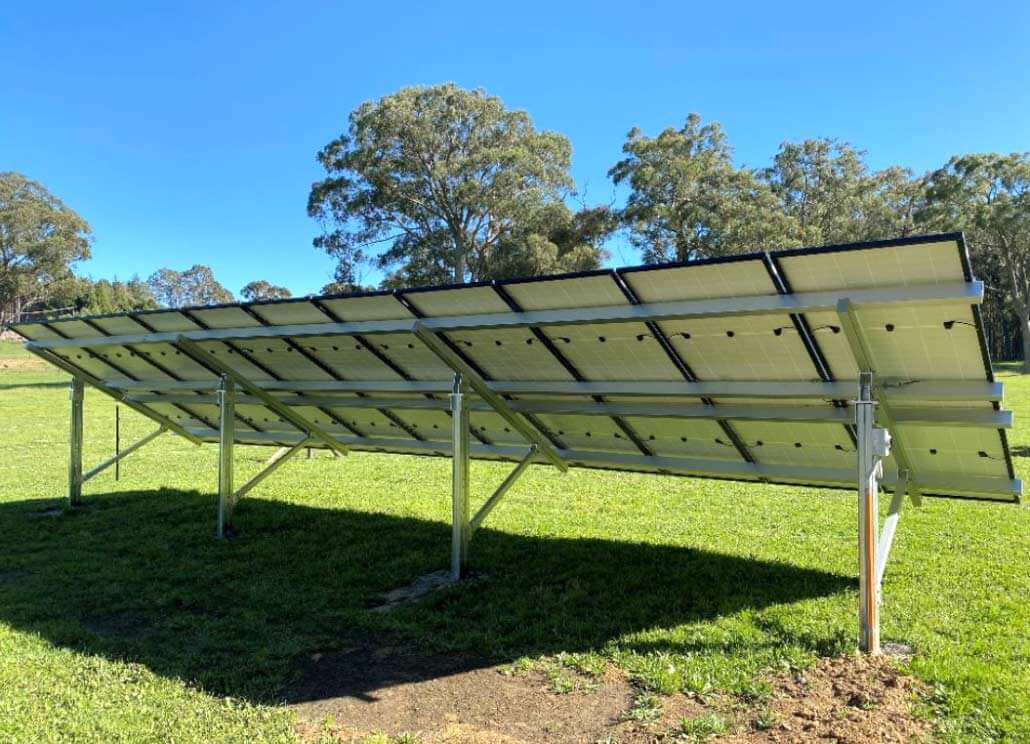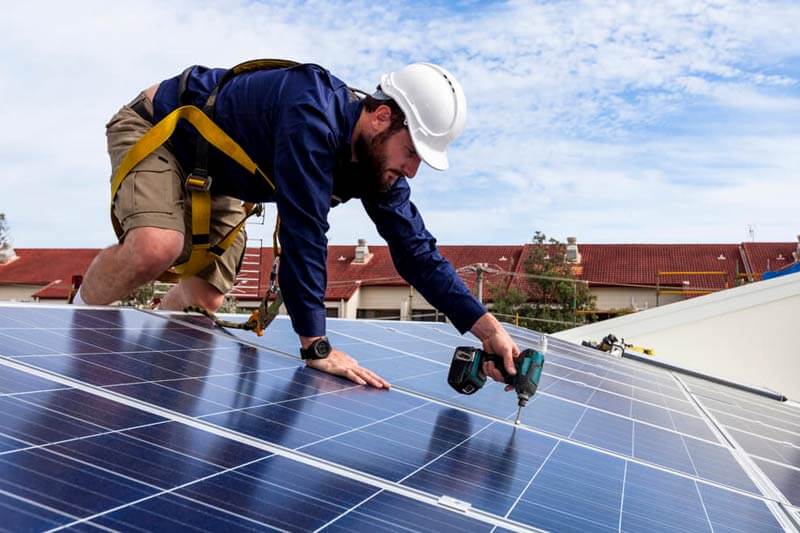Home What Is A Stand Alone Solar System?
What Is A Stand Alone Solar System?
There’s a range of solar systems up for grabs. Among the top picks is the stand-alone system.
A stand-alone solar system is also known as an off-grid system. It consists of solar panels that convert sunshine to electricity, batteries to store the electricity, a backup source of power, and an inverter or charger.
A stand-alone solar system is best for homes in remote areas that are difficult to connect to the grid.

Table of Contents
ToggleHow Much Does A Stand Alone Solar System Cost
Depending on your electricity consumption, a stand-alone solar system costs $25,000 – $45,000. For a typical Australian with an average daily consumption of 18kw/h, it will cost $25,000 to install a suitable stand-alone solar system.
| Description | Cost |
|---|---|
| Average cost | $25,000 to $45,000 |
| Small 2-bedroom house | $15,0000 to $25,000 |
| Average 3-bedroom house | $17,000 to $30,000 |
| Average 4-bedroom house | $25,000 to $45,000 |
| Heavy electricity user | $45,000 to $70,000+ |
Features Of A Stand-Alone Solar System
Below are the key features of a stand alone solar system:
- Solar panels
- Inverter
- Solar batteries
- Power backup, e.g., generator for cloudy or cold days
- Not connected to the electricity grid
- No limit to the size of the solar system you want to install
- No interruptions
- High levels of safety
- Easy to operate and monitor
Pros Of Stand-Alone Solar System
- Easy to expand. If you have additional power needs in your home, you can fix extra solar panels to produce more power.
- Low maintenance cost.
- No power outages. Due to the high demand for grid electricity, there are regular outages. Without a grid connection, you cannot face power outages. Additionally, you have a backup power source.
- No electricity bills. Since you use a solar system, you already paid for the electricity you will use at purchase and installation.
- Eco-friendly. Solar energy is a renewable energy source. It depends on the sun that rises daily. Electricity relies on dirty fossil fuels.
- Cheaper to install for households far away from the grid.
- It is not affected by the cost of oil or gas.
- Energy independence. With a stand-alone solar system, you can generate your power. You don’t have to rely on an energy retailer.
Cons Of A Stand-Alone Solar System
- High installation costs. A stand-alone system is expensive. For a grid-connected solar system, you will not need batteries. Solar battery systems are costly.
- Solar batteries have limited storage capacity. To store enough energy in your batteries, you need to live in a region with high sunshine. Solar battery systems cannot store electric power that you can use for more than a few days. Also, you will need to use your backup source in cold seasons.
- Lifestyle changes. For efficient use of solar power, you need to find the best time to carry out most tasks. Use electrical equipment during the day as your solar system produces the most electricity when the sun is shining. Your solar system consumes the limited power stored in the batteries.
- Battery lifespans. Solar batteries have a 15-year lifespan. Afterward, you need to incur the cost to acquire new batteries.
- You don’t get a feed-in tariff. To earn a feed-in tariff rate, you need a connection to the grid. With a stand-alone solar system, you cannot get a feed-in tariff rate from an electricity retailer to offset the costs of your electricity consumption.
Factors To Consider When Choosing A Stand-Alone Solar System
Where You Live
If you are far away from the grid, then a stand-alone solar system is the best source of power for your home.
Additionally, consider the weather conditions in your area. If you have a lot of sunshine, you can install a stand-alone solar system. You will never have enough power stored in your batteries if you live in a cold and cloudy region.
Cost
The cost of a stand-alone solar system depends on the size of the solar system you want to install. The larger the system, the more you pay.
If you install a solar system, you can recoup the cost of your solar panels in about 4-5 years. Solar batteries are more expensive, and it would take up to 10 years to recoup their cost.
Electricity Consumption
Before installing your stand-alone solar system, you need to determine your power needs. It ensures that you install a solar system to meet all your power needs. Install a solar system that meets your power needs as calculated.
Installer
The installer you choose to install your solar system must be Clean Energy Council accredited. It ensures that you are dealing with a qualified and experienced professional.
You can only get a rebate if you buy your solar panels from an accredited installer.
Why Hire A Pro To Install Your Stand-Alone Solar System?
Hiring a professional to install your stand-alone solar system is the right call because of the following reasons.
- For a proper design of an efficient and effective solar system for your off-grid home
- To lower the cost of purchase and installation of the system. When you buy from a Clean Energy Council accredited pro, you will receive a price rebate on your system.
- Proper installation. Solar systems are electrical systems. You need qualified and experienced persons to install the system for you.
- No maintenance. Proper installation of the system ensures that you will not require maintenance.
- Saves time
- Ease of getting required permits to install a solar system where necessary.
- Get a warranty. Solar systems have a 25-year lifespan. An installer warranty ensures you can get low-priced repairs and consultations when the need arises.
- Keep your system expandable.
Looking for a professional solar installer is not a complicated process, but it is also not a walk in the park. Here is a tool you can use to make the process easier and tolerable.
Use This FREE Tool
Before buying a solar system, conduct a survey and have at least three quotes from different brands.
The tool helps you to get the information you need quickly and from the comfort of your home.
Gosolarquotes.com.au is a free tool that connects homeowners with professional solar installers in a few quick steps.
- Enter your zip code.
- Fill in the form and submit.
- Receive three quotes and advice from accredited solar installers.
- Pick one of them to purchase your solar system from and have them install it for you.

Is A Stand Alone Solar System Worth It?
Yes, a stand-alone solar system is worth installing.
A stand-alone solar system ensures that you are energy independent. You will no longer experience power outages or expensive electricity bills.
Additionally, you can power your home and other installations easily. If you live in a remote area, a stand-alone solar system is the best power solution instead of an expensive connection to the grid.
Compare Solar Panel Quotes
Table of Contents
Toggle









